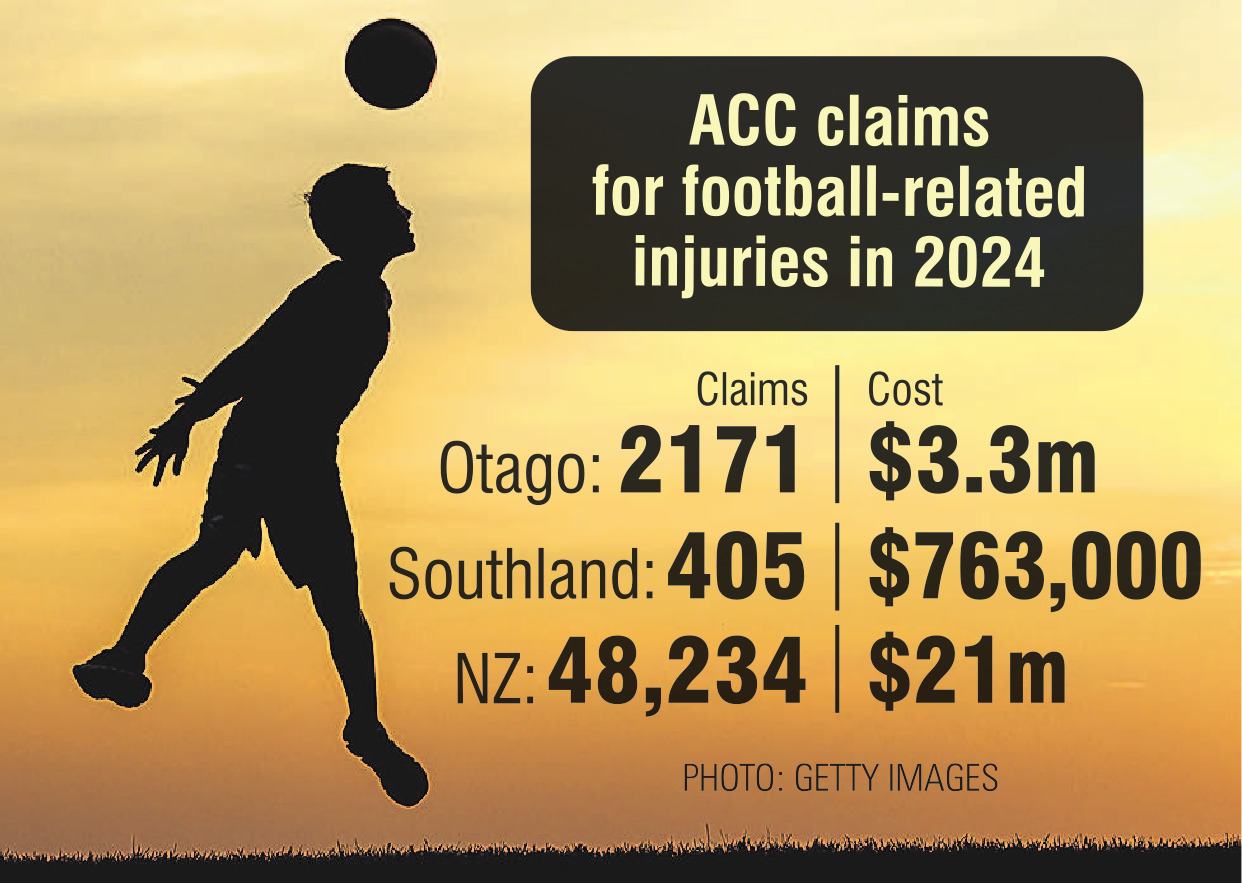
It has prompted New Zealand Football (NZF) and ACC to focus on concussion prevention.
In Otago, there were 2171 football-related injury claims, and 405 in Southland, costing a total of $4,063,000 to help people recover.
Of these injuries, 79 were concussions, ACC data showed.
It was the highest number of new claims and the highest cost in the past five years.
Nationwide, ACC accepted 48,234 football-related injuries — 1221 of which were concussion injuries — which came at a cost of $21 million to help people recover.
To help bring the numbers down, ACC is investing $2.5m in the NZF Prevention and Performance Programme, which focuses on concussion prevention, education and safe return to play.
NZF is the first ACC injury prevention partner to embed proven interventions into coach education and development, making it an integral part of good football in New Zealand.
ACC injury prevention partner Nat Hardaker said it was important the next generation of players had the right resources and support.
"This will help ensure our football community is supported to sustain participation and maximise their time on the field."
The NZF Performance and Prevention Programme provides coaches, players and teams with the most up-to-date, evidence-based education and resources to support optimal preparation, performance and recovery.
This year, the programme was focused on improving concussion prevention and management, Miss Hardaker said.
"People often associate concussion with rugby union and league, but there is a high prevalence of concussion in other sports, including football.
"We know that good early management of concussion can improve long-term outcomes.
"The investment into this partnership will deliver important concussion education.
"It will help ensure everyone knows how to recognise concussion in football and what to do next."
Last year, ACC launched the National Concussion Guidelines for community sport, which provide principles and advice for the sports community and health professionals to recognise concussion and manage the return to play process in a consistent way.
The key changes to the guidelines are: when a player suffers a concussion, they must be symptom-free for 14 days post-injury before a graduated return to play; they must complete a minimum period of 21 days away from full competition before clearance to return; and while it is not mandated, medical clearance is strongly encouraged before returning to play.
The changes are designed to improve the health outcomes and long-term wellbeing for people playing community sport.












